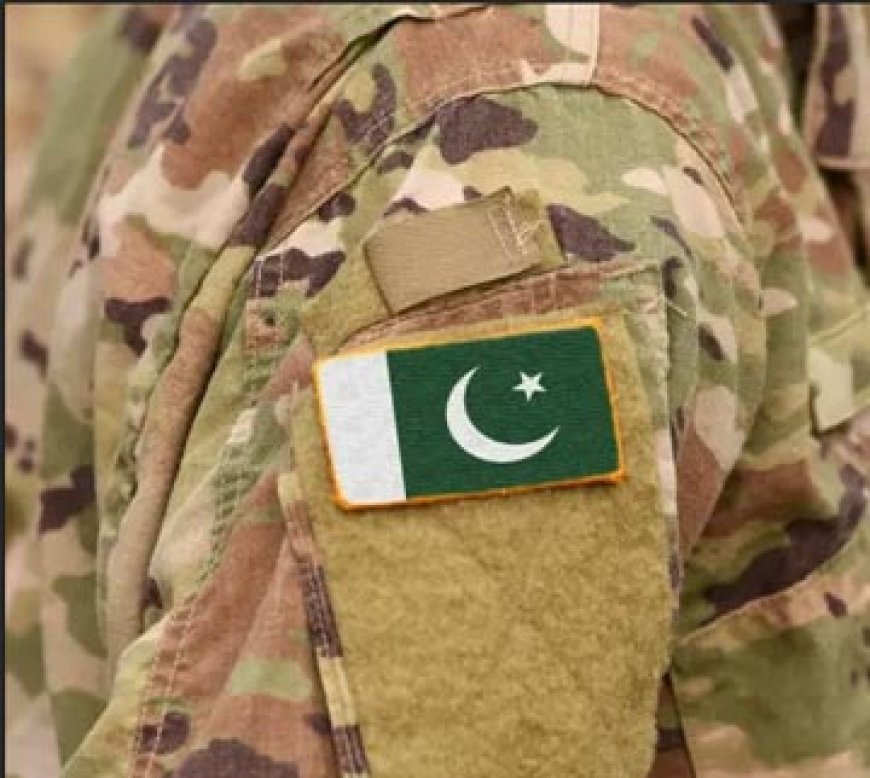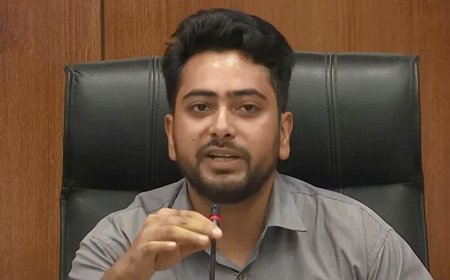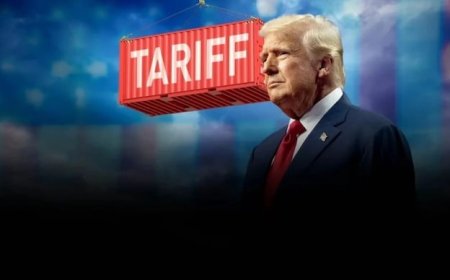"Pakistan’s Military Oligarchy: An Immediate Threat to Global Peace"
The most dangerous aspect of the establishment, posing a direct threat to Indian lives and global security, is its systematic use of militant proxies.

The Pakistani military, operating under the guise of the so-called "establishment," has mutated far beyond its legitimate security mandate into a malignant force in South Asia and a growing menace to global stability. This is no ordinary armed force—it is a parasitic deep state that has methodically strangled Pakistan’s democratic aspirations while weaponizing terrorism as a tool of statecraft. For India, this institution represents not just an existential danger but a fundamental challenge to the international rules-based order. Pakistan’s blood-stained military history offers undeniable proof of an entity operating with impunity—most recently seen in the Pahalgam massacre, where its terror proxies executed civilians with chilling precision.
The military’s stranglehold over Pakistan is near-total. Since its inception, the army has positioned itself as the nation’s ultimate guardian and ideological overseer. Civilian governments are tolerated only as long as they remain pliant; genuine assertions of civilian authority have invariably been crushed—through coups, judicial manipulation, or engineered crises. The blueprint laid down by Ayub Khan’s 1958 coup has been faithfully followed by Yahya Khan, Zia-ul-Haq, and Pervez Musharraf. Even during so-called democratic periods, military interference has remained pervasive—rigging elections, intimidating political figures, and subordinating institutions to Rawalpindi’s interests. This manufactured instability is no accident; it is a deliberate strategy to prevent any civilian leadership from challenging military supremacy. The establishment thrives on chaos, using both internal unrest and external threats to justify its outsized role and commandeering of national resources.
This dominance extends well beyond politics. The military has built an economic empire, controlling prime real estate, monopolizing industries from agriculture to banking, and operating behind a dense wall of secrecy. This military-industrial complex enriches a privileged officer class even as Pakistan’s economy collapses under debt and corruption flowing from the top. Speak to property brokers in London, and they will point out prime real estate owned by retired generals and their families. Meanwhile, the military siphons off national wealth that should fund education, healthcare, and infrastructure, condemning ordinary Pakistanis to entrenched poverty. It simultaneously enforces strict control over information—coercing media, censoring dissent, and violently silencing critics. Journalists who dare challenge the military’s narrative often face disappearance or brutal reprisals.
The establishment’s most egregious trait—directly threatening Indian lives and international security—is its systematic use of militant proxies. The Inter-Services Intelligence (ISI) is not merely complicit; it is the architect and active handler of terrorist organizations like Lashkar-e-Taiba (LeT) and Jaish-e-Mohammed (JeM). These groups, trained, funded, and directed by Pakistan’s deep state, wage continuous asymmetric warfare against India. The 2008 Mumbai attacks, with testimony from David Headley implicating ISI officers like Major Iqbal, exposed this deadly nexus. Similarly, JeM—founded by Masood Azhar following his release during the Kandahar hijacking—has been behind catastrophic attacks, including the 2001 Parliament assault and the 2019 Pulwama bombing. Evidence from intercepted communications clearly points to Pakistani handlers orchestrating these attacks, with Azhar enjoying protection in Bahawalpur despite international sanctions.
Pakistan’s “strategic depth” doctrine—aimed at dominating Afghanistan and bleeding India over Kashmir—provides the ideological cover for this terror infrastructure. ISI has institutionalized the support of such groups, deliberately blurring the distinction between state policy and non-state actors. Training camps across Pakistan, intelligence hubs like the Joint Signal Intelligence Bureau, and divisions such as ISI’s S Wing have been directly implicated in orchestrating terrorism. Intelligence cables, court testimonies, and independent reports consistently highlight how Pakistan’s deep state continues to fund, train, and arm these groups. The Pahalgam massacre on 22 April 2025—where terror proxies slaughtered 28 civilians, including foreign nationals, during US Vice President J.D. Vance’s India visit—represents the latest manifestation of this state-sponsored terrorism.
The Resistance Front (TRF), an LeT offshoot, specifically targeted Hindus, forcing victims to recite Islamic verses before execution—a calculated move aimed at provoking sectarian violence. Indian intelligence traced the attack back to Pakistan-based handlers like Asif Fauji and Suleman Shah, operatives tied directly to ISI networks long established for cross-border infiltration. TRF’s justification for the massacre—opposing “demographic changes” in Kashmir—mirrors Pakistan’s propaganda line. Despite being briefly removed from the FATF gray list, Pakistan has made no genuine effort to dismantle the operational and financial networks of LeT and its proxies.
Beyond India, Pakistan’s establishment has deeply corroded global security frameworks. Its role in fueling jihadist movements during the Soviet-Afghan War—funneling Western and Saudi aid to extremists—created the terror networks that plague the world today. Pakistan’s sanctuary for Taliban leadership, including the Haqqani Network—a group once described by Admiral Mike Mullen as a “veritable arm of the ISI”—allowed the insurgency to regroup and ultimately overthrow the Afghan government. This duplicity—posing as a counterterrorism partner while nurturing extremists—has exacted a catastrophic human and financial toll globally.
The discovery of Osama bin Laden mere meters from Pakistan’s premier military academy in Abbottabad confirmed long-held suspicions of establishment complicity. Though a Pakistani commission blamed "incompetence," revelations from former ISI chief Ziauddin Khawaja suggested high-level orchestration of bin Laden’s hideout, implicating figures like Brigadier Ijaz Shah with knowledge reaching up to General Musharraf. This incident shattered whatever credibility remained, prompting a significant suspension of US military aid.
The Pakistani military’s revisionist agenda—its refusal to accept settled borders, its relentless hostility toward India, and its overt support for non-state actors—has made South Asia one of the world’s most volatile regions. As Pakistan’s economy teeters on the brink of default—hollowed out by military corruption—the establishment leans increasingly on China, amplifying Beijing’s influence and adding a complex layer to South Asia’s security calculus.
Despite overwhelming evidence, Pakistan’s military has deftly manipulated global institutions to avoid accountability, exploiting its strategic geography and nuclear arsenal as leverage. China’s protection at multilateral forums has further shielded it from punitive action. The establishment’s so-called counterterrorism operations, such as Zarb-e-Azb, have carefully targeted only domestic threats while preserving groups aimed at India and Afghanistan.
This reality presents three intertwined existential dangers: the threat of Pakistan’s nuclear arsenal falling into extremist hands; the continued nurturing of global jihadist networks; and the deliberate destabilization of South Asia at a time when cooperation is desperately needed to tackle challenges like climate change and resource scarcity.
For India, the path forward is clear: abandon any illusions of appeasement and impose real costs on the Pakistan establishment. The international community must confront Rawalpindi’s rogue behavior through targeted sanctions on military leadership, financial isolation of its enterprises, cessation of military aid, and diplomatic pressure for verifiable dismantling of terror networks. The Pahalgam massacre must not go unanswered. India must simultaneously strengthen its defences, counter Pakistan’s disinformation campaigns, and expose the reality of state-sponsored terrorism to the world. Tolerating the Pakistani deep state risks endorsing a global threat—one that endangers not just South Asian peace but the broader foundations of international security.
Brijesh Singh is a senior IPS officer and an author (@brijeshbsingh on X). His latest book on ancient India, “The Cloud Chariot” (Penguin), is available now. Views are personal.
What's Your Reaction?






















































































